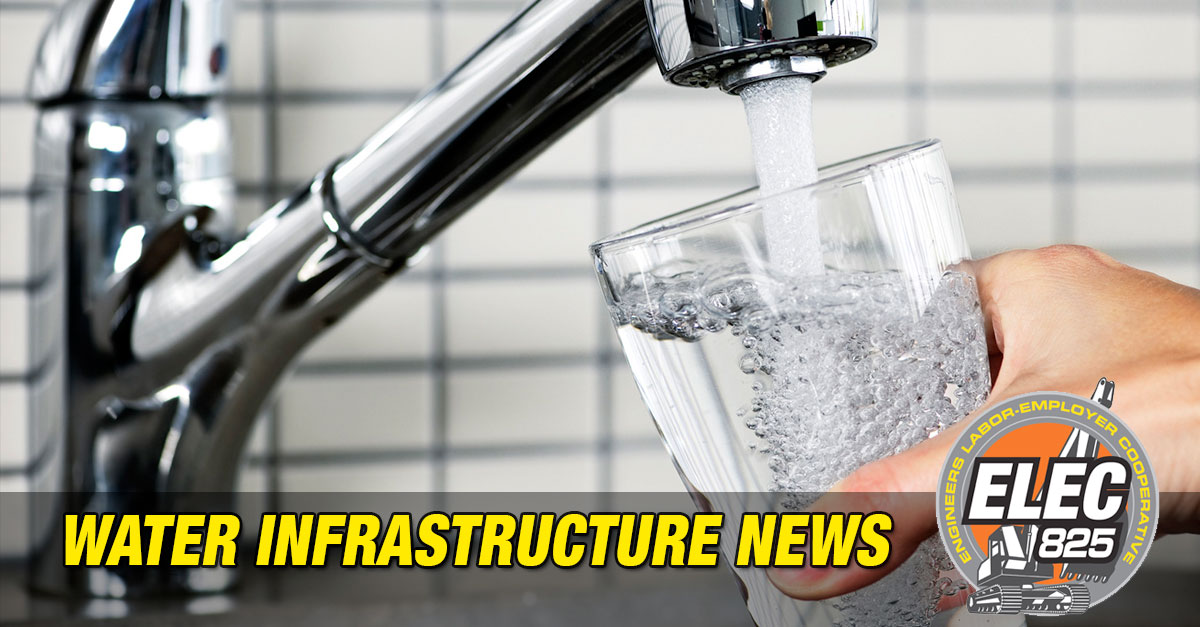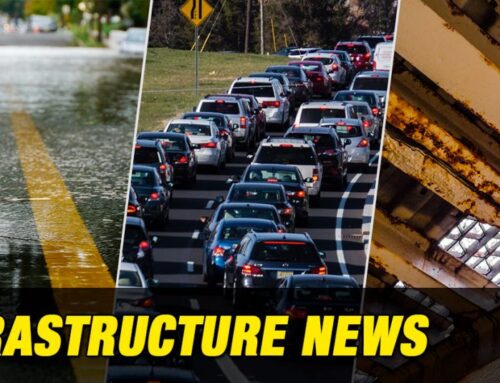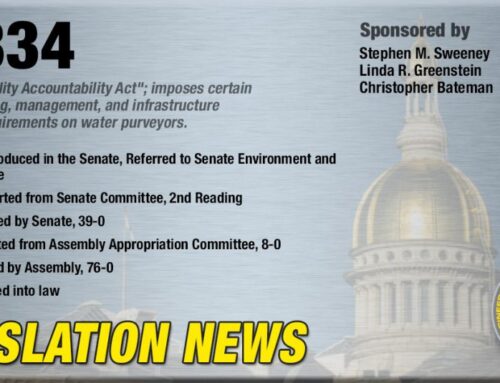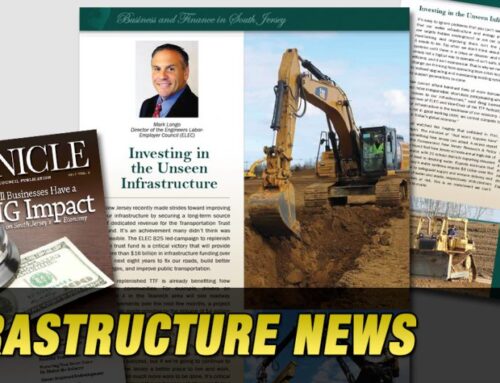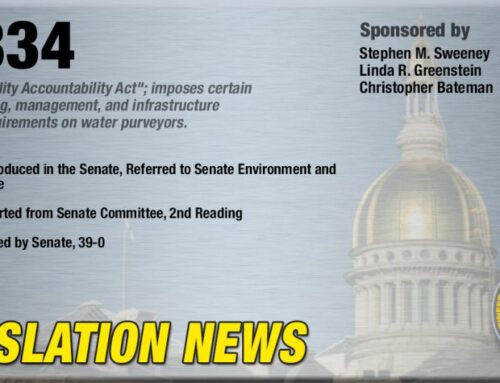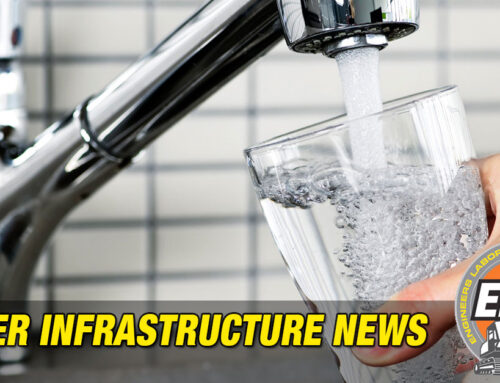[The following Op-Ed from ELEC825 Chairman Greg Lalevee originally appeared in NJSpotlight.com on January 13, 2017]
Fixing pipes should be a priority for all New Jerseyans, not just because of worries about lead but because of deeper structural problems.
This fall, New Jersey took an important step towards improving our infrastructure by securing, through legislative efforts and a public ballot question, a long-term source of dedicated revenue for the Transportation Trust Fund.
It was a landmark move for the future of our state that will provide more than $16 billion in infrastructure funding over the next eight years to fix our roads, build better bridges, and improve public transportation.
Yet the battle to secure a more prosperous, safer and stronger New Jersey isn’t over. In order to continue making New Jersey a better place to live and work, it’s critical for New Jerseyans to unite behind the next great issue facing our state: dedicating funds to fortify, replace, and fix our state’s ailing water infrastructure.
Water infrastructure tends only to make the news for the wrong reasons; it’s an unsung, unseen hero when it works, and a true crisis and catastrophe when it doesn’t. Making matters worse, the most important and costly pieces are often completely hidden — literally, below ground — from the public, so the condition and longevity of pipes can be hard to determine from above ground.
But fixing our pipes should be a major priority for all New Jerseyans. We’ve seen what’s happened in Flint, and revelations about lead in the water in Newark, Paterson, Glassboro and dozens of other places throughout New Jersey — including in our schools — should raise alarm. And while lead is a major concern, our pipes have deeper structural problems that also require urgent attention.
I’ve worked on both our crumbling roads and our aging pipes. I’ve seen the worst our infrastructure has to offer, including bridges that feel unsafe to drive on and clay pipes in such poor shape that they break into dust at the touch.
Experts estimate that our water infrastructure requires $8 billion over the next ten years to protect our water supply, maintain efficient and safe delivery of drinking water and disposal of waste, and properly use the water resources we have. While the political will to raise money for any cause remains a challenge in New Jersey — one that New Jerseyans are right to be wary of — heeding the alarm is a smart move for the faucets and the checkbooks of our residents.
That’s why we need to adopt a holistic approach to improving our water pipes that takes into account indoor piping, drinking water, sewers and our water’s environmental impact, all at once.
This isn’t an easy task. But it’s been a huge year of progress for New Jersey. The TTF deal and the “yes” vote on Public Question #2 were both extremely important measures in improving New Jersey’s failing infrastructure. New Jersey showed that brave legislators, activists, and citizens can unite behind an important cause and enact common-sense, useful change to make our state a better place.
We have the tools to improve our water infrastructure, too, in part thanks to major advances in technology. Funding to improve our pipes and water treatment infrastructure will go toward gathering robust amounts of data, improving sensors, and adopting new technologies that extend the life of these complex systems and save money in the long run. Our state will use less water, make more out of what we have and avoid costly waste and infrastructure failures.
It’s a smart move for both our quality of life and our state’s long-term finances, and is fundamental in securing a brighter future for New Jersey.
For the year ahead, the challenge has just begun. Even as politics grows ever more divisive, New Jersey’s politicians, voters, and businesses hold the power to make commonsense decisions to improve our state, to compromise and to contribute to the greater good.
In 2016, New Jersey proved it had the will to make difficult decisions to improve our state. In 2017, let’s turn our attention to our water supply, and make sure our most valuable resource gets the support, funding, and comprehensive overhaul it needs to keep our residents safe and improve life again in New Jersey.


